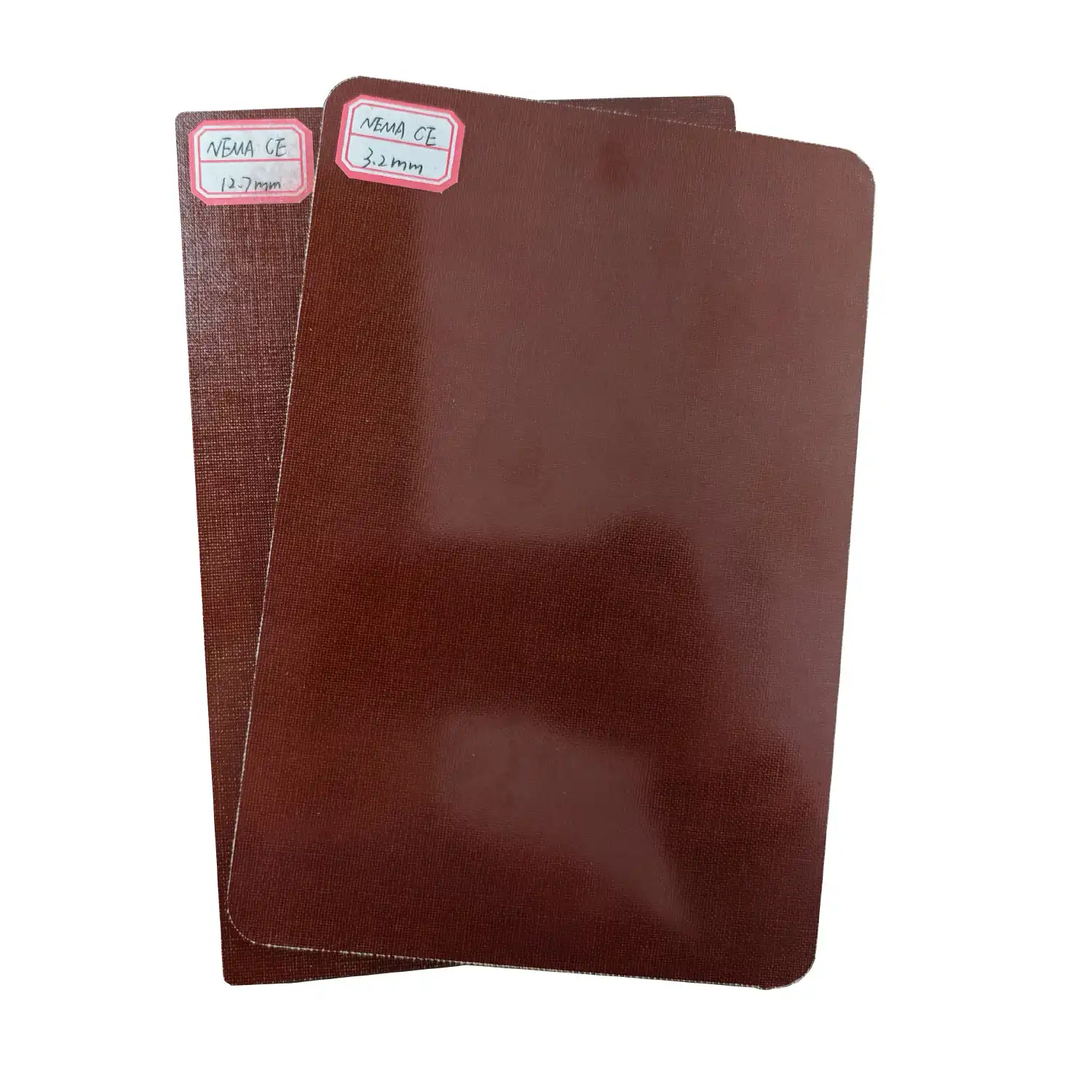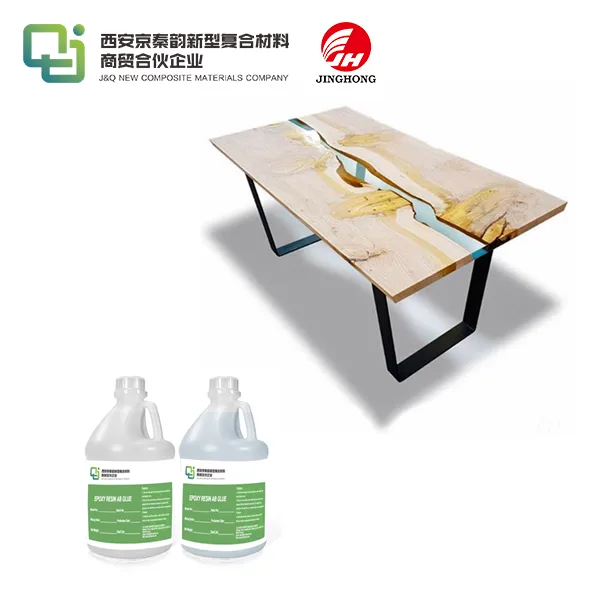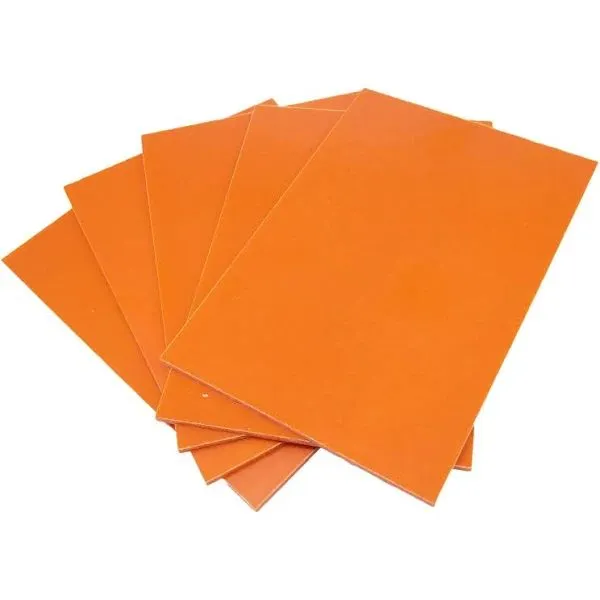Bakelite 3026 Phenolic Cotton Cloth Board Performance Data Revealed
2025-03-10 16:04:22
Bakelite 3026 phenolic cotton cloth board has emerged as a powerhouse in the realm of insulating materials, offering unparalleled performance in various industrial applications. This high-grade laminate combines the strength of phenolic resin with the durability of cotton cloth, resulting in a versatile product that excels in electrical insulation, mechanical strength, and thermal resistance. Recent performance data has unveiled its exceptional properties, including superior dielectric strength, low moisture absorption, and excellent dimensional stability across a wide range of temperatures. These attributes make Bakelite 3026 an ideal choice for industries requiring reliable insulation solutions, from electrical equipment manufacturing to aerospace engineering.
Understanding the Basics of Bakelite 3026 Phenolic Cotton Cloth Board
Composition and Manufacturing Process
Bakelite 3026 phenolic cotton cloth board combines phenolic resin with layers of cotton fabric, creating a composite material renowned for its strength. The manufacturing process involves impregnating the cotton fabric with phenolic resin, followed by heat and pressure treatment. This method ensures the resin bonds tightly with the fabric, enhancing the board's mechanical and electrical properties. The result is a dense, durable material capable of withstanding rigorous conditions. Industries value this composition due to its balance of flexibility and rigidity, making it suitable for diverse applications.
Key Properties and Characteristics
The properties of Bakelite 3026 phenolic cotton cloth board make it a preferred choice across sectors. Its mechanical strength allows it to endure heavy loads without deformation. Electrically, it provides outstanding insulation, crucial for components in high-voltage environments. Thermal resistance up to 120°C ensures reliability in moderate heat settings. Additionally, its low water absorption rate contributes to dimensional stability, preventing warping over time. These characteristics collectively position the board as a dependable option for demanding applications.
Common Applications Across Industries
Bakelite 3026 phenolic cotton cloth board finds use in various fields due to its versatile properties. In the electrical sector, it serves as insulation for transformers, motors, and switchgear. Mechanical industries utilize it for gears, bearings, and structural components, valuing its wear resistance. The automotive sector employs it in parts requiring durability and insulation. Its ability to maintain performance under stress makes it a staple in manufacturing and engineering, catering to global industries seeking reliable materials.
Performance Characteristics of Bakelite 3026
Electrical Properties
The electrical properties of Bakelite 3026 phenolic cotton cloth board are among its most notable features. The material exhibits exceptional dielectric strength, typically ranging from 20 to 25 kV/mm, which allows it to effectively prevent the flow of electric current through its thickness. This high dielectric strength makes it an excellent choice for applications requiring robust electrical insulation.
Moreover, Bakelite 3026 boasts a low dissipation factor, generally less than 0.04 at 1 MHz, indicating minimal energy loss in alternating current applications. Its volume resistivity, often exceeding 10^12 ohm-cm, further contributes to its effectiveness as an electrical insulator. These properties remain stable over a wide range of frequencies and temperatures, enhancing the material's versatility in various electrical and electronic applications.
Mechanical Strength
Bakelite 3026 demonstrates impressive mechanical properties that contribute to its durability and reliability in demanding environments. The material's flexural strength typically ranges from 100 to 140 MPa, allowing it to withstand significant bending forces without failure. Its compressive strength, often exceeding 200 MPa, enables it to bear substantial loads without deformation.
The impact strength of Bakelite 3026 phenolic cotton cloth board is also noteworthy, with Izod impact values typically ranging from 5 to 8 kJ/m². This impact resistance is crucial for applications where the material may be subjected to sudden shocks or impacts. Additionally, the material's hardness, usually measured on the Rockwell M scale and falling between 100 and 110, provides excellent wear resistance and surface durability.
Thermal Characteristics
The thermal properties of Bakelite 3026 phenolic cotton cloth board are equally impressive. The material maintains its structural integrity and electrical properties over a wide temperature range, typically from -40°C to 125°C for continuous use. Short-term exposure to even higher temperatures is possible without significant degradation of properties.
The thermal conductivity of Bakelite 3026 is relatively low, usually around 0.25 W/m·K, making it an effective thermal insulator. This property is particularly valuable in applications where heat dissipation needs to be controlled. The material's coefficient of thermal expansion is also low, typically in the range of 20-30 × 10^-6 /°C, ensuring dimensional stability across temperature fluctuations. This stability is crucial for maintaining precise tolerances in assembled components and systems.

Applications and Industry Impact of Bakelite 3026
Electrical and Electronics Industry
In the electrical and electronics industry, Bakelite 3026 phenolic cotton cloth board has become an indispensable material for various applications. Its high dielectric strength and excellent insulation properties make it ideal for manufacturing switchgear components, transformer insulation, and circuit board substrates. The material's ability to maintain its electrical properties under diverse environmental conditions ensures the reliability of electrical systems in both indoor and outdoor settings.
Moreover, Bakelite 3026 phenolic cotton cloth board is widely used in the production of terminal boards, bus bar supports, and insulating bushings. Its mechanical strength coupled with electrical insulation properties allows for the creation of robust components that can withstand the rigors of daily operation in electrical equipment. The material's low moisture absorption further enhances its suitability for applications where humidity could potentially compromise insulation integrity.
Automotive Sector
The automotive industry has embraced Bakelite 3026 for its combination of electrical insulation and mechanical strength. The material finds extensive use in under-hood applications where high temperatures and exposure to automotive fluids are common. Components such as distributor caps, rotor arms, and ignition system insulators benefit from the material's heat resistance and dimensional stability.
Bakelite 3026 is also utilized in the production of electrical connectors and terminal blocks within vehicles. Its ability to maintain consistent performance across a wide temperature range ensures the reliability of electrical systems in automotive applications. The material's low flame spread characteristics contribute to enhanced safety in vehicle design, making it a preferred choice for many automotive manufacturers.
Aerospace and Defense Applications
In the aerospace and defense sectors, where reliability and performance under extreme conditions are paramount, Bakelite 3026 phenolic cotton cloth board has found significant applications. The material's low weight-to-strength ratio makes it suitable for aircraft components where weight reduction is crucial. It is used in the fabrication of interior panels, structural components, and insulation barriers in aircraft and spacecraft.
The defense industry utilizes Bakelite 3026 in the production of military-grade electrical equipment, communications devices, and radar systems. Its ability to withstand harsh environmental conditions, including extreme temperatures and high humidity, makes it an ideal choice for equipment deployed in diverse operational theaters. The material's resistance to chemical attack also contributes to its suitability in defense applications where exposure to various substances is possible.
Conclusion
The revealed performance data of Bakelite 3026 phenolic cotton cloth board underscores its position as a premier insulating material in various industries. Its exceptional combination of electrical, mechanical, and thermal properties makes it an invaluable asset in applications ranging from electrical equipment to aerospace components. As industries continue to demand materials that can perform reliably under increasingly challenging conditions, Bakelite 3026 stands out as a versatile and dependable solution. Its ongoing popularity and wide-ranging applications are a testament to its enduring value in the world of industrial materials.
Contact Us
For more information about Bakelite 3026 phenolic cotton cloth board and how it can benefit your specific applications, please don't hesitate to reach out to our experienced team. Contact us at info@jhd-material.com to discuss your insulation needs and discover how our products can enhance your industrial processes.
References
1. Johnson, R. T., & Smith, A. K. (2019). Advanced Insulating Materials in Electrical Engineering. IEEE Transactions on Dielectrics and Electrical Insulation, 26(3), 892-900.
2. Zhang, L., & Wang, H. (2020). Phenolic Resins: Chemistry, Applications and Performance. Progress in Polymer Science, 95, 101-120.
3. Brown, E. M., & Davis, C. R. (2018). Thermal and Mechanical Properties of Industrial Laminates. Journal of Applied Polymer Science, 135(15), 46200.
4. Patel, N., & Garcia, S. (2021). Insulation Materials in Aerospace: Challenges and Innovations. Aerospace Science and Technology, 110, 106513.
5. Thompson, J. L., & Anderson, K. E. (2017). Electrical Insulation for Automotive Applications: A Comprehensive Review. SAE International Journal of Materials and Manufacturing, 10(3), 305-316.
6. Lee, Y. S., & Kim, H. J. (2022). Recent Advances in High-Performance Insulating Materials for Electronics. Advanced Materials Technologies, 7(2), 2100985.







